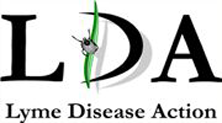Lyme disease – patients to start designing clinic
Leading Lyme disease charity, Lyme Disease Action (LDA), is commencing a project to develop a specification for a specialist NHS clinic for Lyme disease. Using co-production methods, patients will work together with the whole range of health professionals and researchers who ultimately will be involved in any new clinic.
The first reports of Lyme disease in the UK were in the 1980s and cases have been steadily rising as the bacteria spreads through wildlife and more ticks become infected. A recent study examining GP records indicates that the true figure exceeds previous estimates. Based on this study, LDA estimates that about 10,000 people may have been diagnosed in 2018.
Stella Huyshe-Shires, chairman of Lyme Disease Action says “Those diagnosed with Lyme disease early in infection are usually treated within Primary Care and recover, but complex cases and long standing cases frequently need referral to secondary care. Symptoms are varied and consultations may be with a number of different specialties – infectious diseases, neurology, rheumatology or cardiology, where consultants have too few patients to develop sufficient experience.”
Current practice is to discharge patients without long term follow up, so outcomes are not recorded. It is likely, based on studies in other countries, that many of these patients do not recover.
Research recommendations published by NICE in 2018 included a high priority recommendation to gather data on Lyme disease patients in the UK, their treatment and outcome. A specialist clinic, if carefully planned, could help achieve this and ultimately improve both outcomes for patients and experience in health professionals.
LDA has engaged Lab4Living, a trans-disciplinary research group at Sheffield Hallam University to start on developing a specification for a specialist clinic. This will be a collaborative effort including GPs, consultants, nurses, researchers and commissioners.
ENDS
For more information on Lyme disease, images of ticks or a typical rash, or to talk to someone from LDA, please contact the LDA press team on press@nulllymediseaseaction.org.uk
For Information on Lab4Living: Joanne Beattie in the Sheffield Hallam University Press Office on 0114 225 2074 j.beattie@nullshu.ac.uk or email
Further information:
- Essential information on ticks and Lyme disease is available for the public and for doctors on the LDA website https://www.lymediseaseaction.org.uk/ including links to Public Health England and NICE.
- Lab4Living is a trans-disciplinary research group, at Sheffield Hallam University recently awarded £4 million in funding from Research England in recognition of its excellence in design-led research. It specialises in public engagement.
Notes for editors
- NICE research recommendations are available here nice.org.uk/guidance/ng95/chapter/recommendations-for-research
- The incidence of Lyme disease in the UK is much lower than on the continent, where the disease has been known for over a century. Public Health England reported 1641 laboratory confirmed cases in England and Wales in 2018. This total does not include those diagnosed clinically following the characteristic rash or because of a failure to test and a misdiagnosis. See www.lymediseaseaction.org.uk/latest-news/uk-incidence-of-lyme-disease for recent news
- There is scientific uncertainty around the cause of persistent Lyme disease symptoms following treatment. In any one case it could be due to inadequately treated disease, tissue damage or an auto immune reaction. There is currently no test in routine use which can identify a still active disease.
- Lyme disease in UK ticks: an average of about 6% of UK ticks carry Lyme disease though it varies from place to place and year to year from zero to the maximum found of 18%. This compares with much higher levels in European ticks of 20-50%
- Because of the relatively recent rise in cases (first confirmed UK case reported in 1986) UK clinicians have relatively little experience of Lyme disease, and a tendency to rely on the blood test to both confirm and exclude a diagnosis of Lyme disease.
- Lyme disease has symptoms which overlap those of other diseases and conditions. Because of the lack of a definitive test, patients with non-specific symptoms often seek diagnosis from private laboratories and clinics which may use alternative tests.
Issued by Lyme Disease Action,
Striving for the prevention and treatment of Lyme disease and associated tick-borne diseases.
Registered Charity Number 1100448 – Registered Company Number 4839410

 Printer Friendly
Printer Friendly